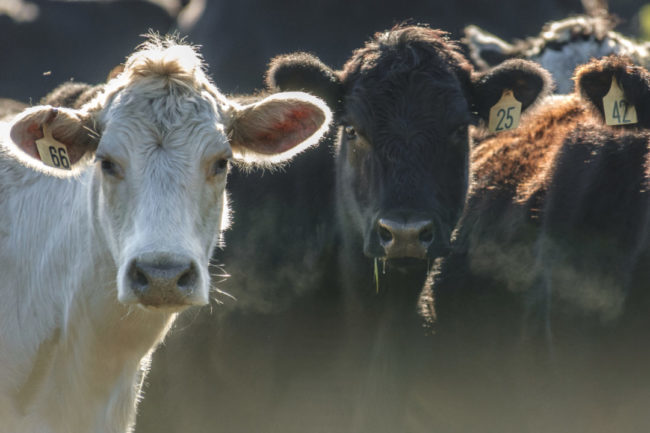WASHINGTON- The National Cattlemen’s Beef Association recently announced its support of the Amplifying Processing of Livestock in the United States (A-PLUS) Act.
The legislation would clarify the Packers and Stockyards Act to allow livestock market owners to open and operate small meatpacking plants.
“The need for new packing facilities has become a critical issue for the cattle industry. Huge amounts of capital are required to get new facilities up and running,” said Clint Berry, chairman of NCBA’s Livestock Marketing Council. Understanding the need for these new facilities, producers themselves have invested in these efforts but outdated regulations still prevent livestock markets from having ownership in packing facilities. The A-PLUS Act paves the way for the marketing segment of the cattle industry to be included as investors in these facilities, helping reduce dependence on major packers and improving the competitiveness of the live cattle market.”
The A-PLUS Act was sponsored in the House of Representatives by Rep. Vicky Hartzler (R-MO) and Rep. Jimmy Panetta (D-CA).
“For decades, livestock auction markets have played by an outdated and restrictive book of rules which limited capacity and created a system where large meatpacker behemoths literally and figuratively slaughtered the competition,” Hartzler said. “The A-PLUS Act would even the playing field and fix these regulations for the benefit of our livestock auctions and small packers. I thank Rep. Panetta for his partnership on this legislation for our regional packing facilities.”
If the changes are passed regarding the Packers and Stockyards Act, livestock markets can own, invest or manage small to medium-sized processing facilities with a slaughter capacity of less than 2,000 head per day or 700,000 head per year.
“The meatpacking sector continues to be the bottleneck in the cattle and beef supply chain,” said Tanner Beymer, NCBA senior director of government affairs. “Opening more small and medium-sized processing facilities increases opportunities for producers to market their cattle and helps balance leverage in pricing negotiations.”
The United States Cattlemen’s Association (USCA) also weighed in with its support of the legislation late last week.
“If one of these entities wanted to invest in a local processing facility to increase processing capacity for producers in their area, there shouldn’t be an outdated regulation holding them back from doing so,” said USCA President Brooke Miller. “USCA would like to thank Representatives Panetta and Hartzler, and the Livestock Marketing Association for working to advance this commonsense regulatory fix.”


